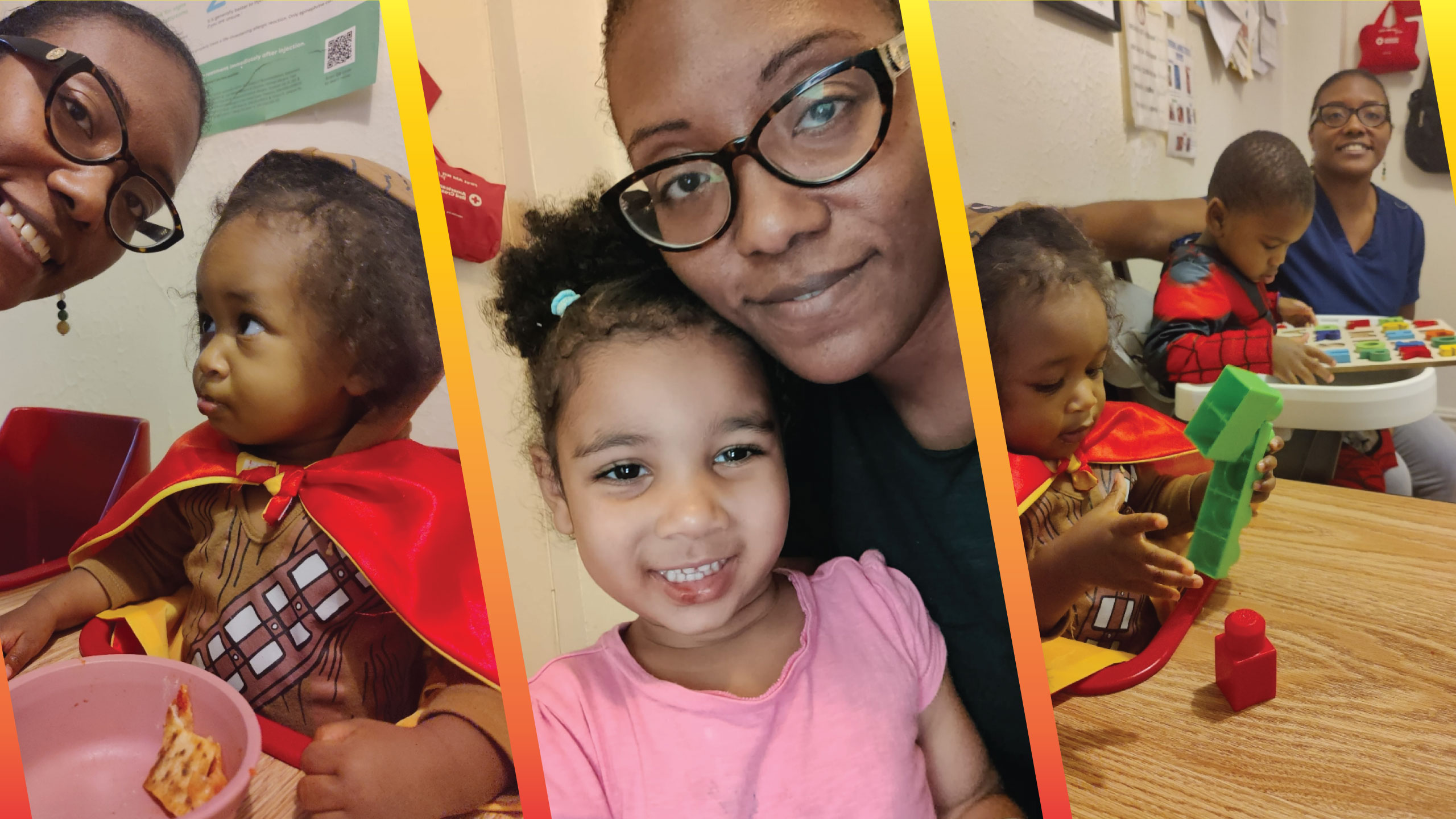Loving ice cream doesn’t qualify you to open an ice cream parlor. The same goes for child care. Entrepreneurs who educate other people’s children in their homes need more than a love for babies and toddlers. It takes a host of skills and supports to run a sustainable business. One difference from the ice cream industry is that child care enables parents to get to work, thereby helping the entire economy. Another is that making a profit in child care often seems nearly impossible. This is a story of one entrepreneur—her motives, her support system and the decision she has to make about whether to continue.
Back Where We Started
After earning her master’s degree in psychology and working with teens for 15 years, Shanette Linton of the Bronx decided to move into child care. “I saw so many things as those 18- and 19-year-olds were hitting different barriers,” she says. “I realized there was something lacking in their educational foundation and experiences. Change needs to happen earlier in development. That’s when they start liking books, liking to learn.”
Remembering the difficulty she had had finding care for her own son, Linton opened Little Leaders Group Family Daycare in her apartment five years ago. Five days a week, from 7:00 a.m. to 6:00 p.m., she and an assistant care for six children, including two infants and two three-year-olds with developmental delays, one diagnosed and one suspected. In so-called off hours, she’s preparing lesson plans, washing sheets and hunting for bargains on food and supplies.
Combining fees from parents and vouchers from the State of New York, Linton makes around $6,000 per month, but after paying her assistant’s wages ($15 per hour, up from $12 pre-Covid) and rent, as well as taxes and liability insurance, there’s often nothing left for her. “At this point,” she told me. “I’m pretty much breaking even, but only because I’m not paying myself the amount I should be.”
The only bright spot in this bleak financial picture was Covid-era stabilization grants—federal money administered by the State of New York—$65,000 between 2021 and 2022. “It was a great Band-Aid,” Linton says, “but now we’re back where we started. Struggling.”
Acumen and Confidence
Home-based child care is the most common type of care for U.S. infants and toddlers, offering a caring environment that parents trust and that is often more flexible than other forms. Before, during and since the start of the pandemic, however, the economics often don’t add up.
👉 Decline of Home-Based Child Care Options Sours Parents’ Perception of the Child Care Market
Writing in the Stanford Social Innovation Review, Betsy Biemann and Keith Bisson describe the efforts of the Child Care Business Lab, which serves Maine residents with “a passion for early childhood education who would like to start a child care business but lack the acumen and confidence to get started.” Helping these entrepreneurs to meet market demand, they contend, not only addresses shortages in care options; it revitalizes communities.
All Our Kin is another model. Launched in New Haven, Conn., in the early 2000s, it offers training and technical assistance and now operates in 23 states and Washington, D.C. This is Linton’s support network.
👉 Fortifying Family Child Care—and Families
South Bronx office coordinator Fendi Munoz-O’Shea met Linton in early 2018. “I was the first one to talk to Shanette,” she recalls. “She came with such enthusiasm, but what really stands out is her tenacity. When she says she’s going to do something, she does it.”
When North Bronx site director Erica “EB” Buchanan encountered the newly licensed Linton, she immediately realized that this was a person who “would do what it takes to improve her practice as an educator. She really is a lifelong learner.”
Learning and development specialist Rosemary Goyzueta started working with Linton as she went through All Our Kin’s business series and coaching program. “She worked so hard,” Goyzueta recalls, “developing the communication tools with the families, her contracts, the policy handbook. I would visit her during lunchtime, and even though it was her break, she was always there working. Since then, we have been in continuous communication because she’s always reaching out. She really has a passion for constant improvement for her business.”
Sandra Massey has been providing another type of coaching to Linton for two years—educational coaching—and on top of the entrepreneurial growth she notices, she praises her powers of observation. “This is essential for making sure that the children’s developmental needs are met,” Massey says. “We can’t diagnose a developmental delay, but we can make notes and recommendations, asking the pediatrician to schedule an evaluation.” Making these observations early makes a big difference for children with delays.
(Still) in Search of Stabilization
A master’s degree. Tenacious. Observant. A lifelong learner with a passion for constant improvement and a robust support network. And of course, she loves the children. Isn’t this someone we want to keep on the job? Doesn’t her financial struggle suggest that there’s something wrong with the system?
“We all know that we need permanent investment in child care,” says Buchanan. “When the [federal] stabilization money runs out, is it really, truly stabilized? Our providers are pulling from their own pockets to make sure their assistants are paid. It can’t be ‘one and done.’ It needs to be consistent.”
Linton notes that her financial challenges are all too common in the Bronx and beyond. “If there’s no federal funding or any type of money being put into child care,” she says, “there’s not going to be any child care left.”
She continues: “You have to love what you do, but then, at some point, you have to think about, ‘Does this make sense?’”

Mark Swartz
Mark Swartz writes about efforts to improve early care and education as well as developments in the U.S. care economy. He lives in Maryland.



